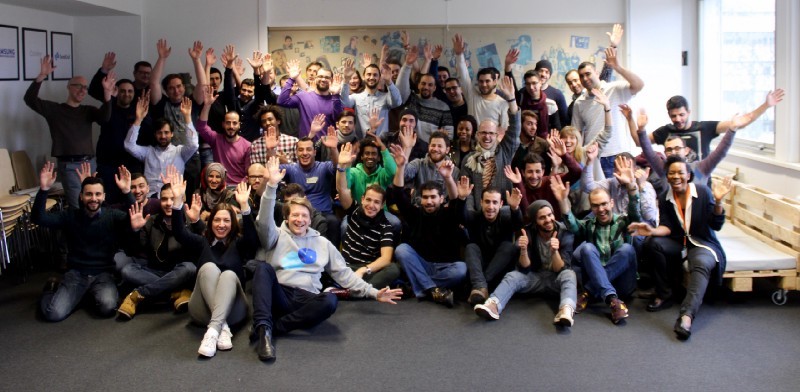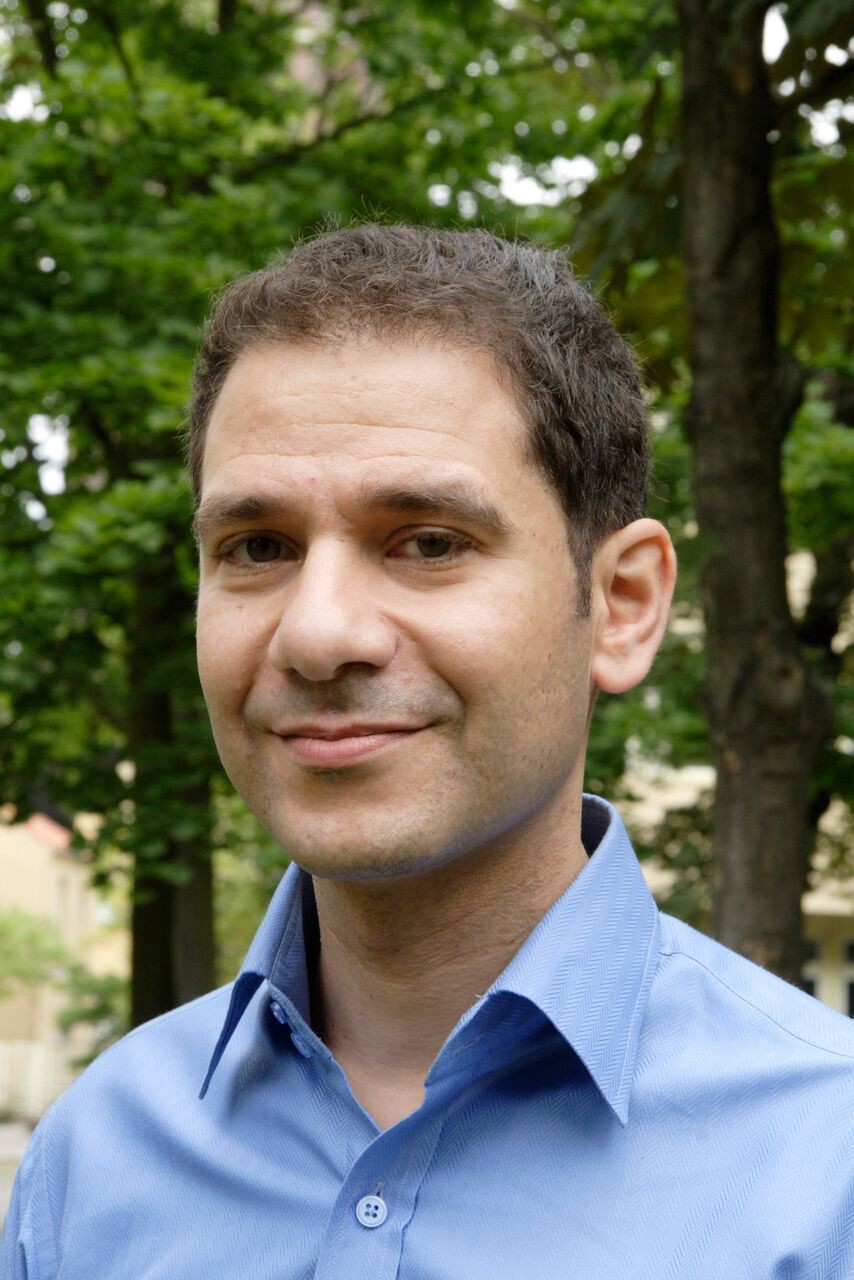Between January 1 and February 28 of this year, more than 44,000 Syrian refugees arrived in Germany, adding to the more than 425,000 Syrian asylum-seekers who’ve arrived there since January 2015. What they’ve experienced — violence, loss, uprooting their lives — leaves them particularly vulnerable to developing depression, anxiety and PTSD. According to a report from the German Federal Chamber of Psychotherapists (BPtK) released in September 2015, more than half of all refugees in Germany had mental health issues at the time, most often PTSD.
It’s a growing issue, with serious consequences, that the existing mental health infrastructure in Germany has been unable to fully handle. Left untreated, even mild depression, with symptoms like lack of sleep or irritability, can affect motivation, ability to work and cultural adjustment. On the severe end of the spectrum, 40 percent of refugees with PTSD reported suicidal thoughts or actions.
There’s another significant barrier to treatment: the fact that the concept of seeking therapy is relatively new to Syrian culture. According to a 2015 report commissioned by the UN Refugee Agency (UNHCR), Syrians may be reluctant to ask for help because they fear the stigma that surrounds mental illness, considered shameful by many within their culture.
To address the situation in Germany, locals and Syrians alike have stepped up to help. Here are a few of the people making a difference.
MALEK BAJBOUJ
Medical Doctor and Professor of Psychiatry and Neuroscience at Charité University Hospital in Berlin
Bajbouj (who is German-born and of Syrian descent) heads the Arab Outpatient Unit at Charité, a system of refugee mental health facilities he helped establish. “Sometimes in life things happen by coincidence. I was at a party with somebody who works for the Ministry of Foreign Affairs. He said, ‘Don’t you want to do something as a psychiatrist in Syria, set up a little project?’” Bajbouj did. Together with the CEO of Charité, Bajbouj, 46, approached the Berlin Senator for Health to request help opening needed outpatient mental health facilities. “And it grew,” he says.
The Arab Outpatient Unit now operates three mental health facilities in Jordan (where they serve around 2,000 patients a year) and two in Berlin — one for long-term treatment for roughly 800 patients a year; the other a walk-in facility where patients can receive a quick diagnostic evaluation without long-term treatment, regardless of insurance or asylum status. The walk-in facility is staffed by doctors fluent in Farsi and Arabic, as well as translators, and provides low-level but effective interventions like group therapy. In the last year the walk-in clinic has seen approximately 1,400 patients for whom mental health resources would be otherwise inaccessible.
Doctors at the Arab Outpatient Unit teach patients the basics of what depression is and what causes it. To increase accessibility, Bajbouj is currently developing culturally-sensitive smartphone apps to help Syrians learn more about stress- and trauma-related disorders as well as teach them stress-relieving techniques.

LINA & LAMA ALHADDAD
Syrian newcomers turned mental health activists
Syrian newcomers aren’t just accepting aid from mental health services — they’re also providing aid themselves. Lina Alhaddad, 29, arrived in Berlin in October 2015 from Damascus. Lina, who holds a Masters degree in Medical Sciences with a focus on Cultural Psychology from Kyoto University, knew no one other than her sister Lama, 27, and didn’t speak the language. She felt like her life was reduced to going back and forth to school and she struggled to find meaning. She began volunteering with social service organizations helping refugees, seeing where she could be of use. “Everybody would say, ‘Well you’re a psychologist, you speak Arabic, you have experience living abroad — that’s very useful,” Lina says.
Eventually those experiences led the sisters to paid positions with Albatros gGmbH, an organization based in Berlin offering counseling services and social support to refugees. “The feeling I could help, support programs, gave me a kind of sense of purpose and worth,” Lina says.
The sisters still grapple with the ongoing emotional toll of the violence they escaped, and personal accounts they hear from refugees undergoing counseling often resonate with their own experiences. “There are times when the story is so similar to our story,” Lina says. “I find that, surprisingly, whenever I am in these sessions I feel stronger about myself than I do in a normal day. Even though I am very powerless, in this situation I can help.” She explains to other Syrians that there’s no shame in feeling sad or weak, a cultural stigma that, despite her education, she’s wrestled with herself. This relatability helps others open up and adjust to the new surroundings Lina and Lama have now become familiar with.
Responding to the need for refugee mental health support has also shaped the sisters’ own futures. Lama has started graduate school and continues to work as a translator and with social work support staff at Albatros. Lina has left her position to approach the issue from a different angle: She was accepted as a psychology PhD candidate at Freie Universität Berlin, where she researches acculturation and integration of refugees.

ANNE KJÆR RIECHERT
Founder, ReDI School of Digital Integration
When The UNHCR issued their report on refugee mental health, they advocated for interventions beyond clinical treatment — for programs where community is fostered, practical support provided and the perspectives of refugees taken seriously. Berlin entrepreneur Anne Kjær Riechert, 34, took that call to action to heart. When the massive influx of asylum-seekers began, she set out to integrate newcomers by teaching them an in-demand skillset in Germany’s start-up capital: coding.
Along with Ferdi van Heerden, she founded ReDI School of Digital Integration, offering free 3-month programs to teach asylum-seekers basic coding along with the ins and outs of Berlin’s booming tech scene. Students (most are in their 20s) work in teams to create tech solutions to their own real-world challenges, including helping refugees access mental health resources. (One student project, an app to quickly connect Syrian refugees to psychological aid, won second place in Startup Europe Summit’s 2016 Hackathon.) ReDI’s mission is to provide mentorship and shape students into viable candidates for paid tech internships, providing entry into future careers.
But turning Berlin’s newcomers into tomorrow’s programmers isn’t ReDI’s only objective. “The human connection is really important and that we help our students break out of what I would call ‘the refugee bubble,’” Anne says. “What we are trying to do is bring them out of the [refugee] camps, bring them in contact with the tech industry in Berlin and help them [establish] their root into the job market or to go back to university or to start their own start-up.”
ReDI’s emotional impact is undeniable. Anne says she witnesses how the program empowers students to reclaim personal agency and lay the foundations for their future, despite difficult present circumstances that affect their feelings of self-worth. “All of a sudden you come to this culture and you have this kind of label [refugee] …that you might not associate with at all,” she says. “For us it’s about making friends, making family, about what you want for the future and how to get there. They feel they’re being taken seriously.” Anne recently received an email from a former student who, while attending ReDI and living in a refugee camp, had a particularly traumatic experience. He shared news of a paid internship and a message of thanks: “I finally feel that I’ve come alive again.”
Originally published at medium.com


